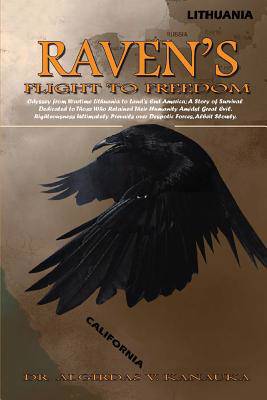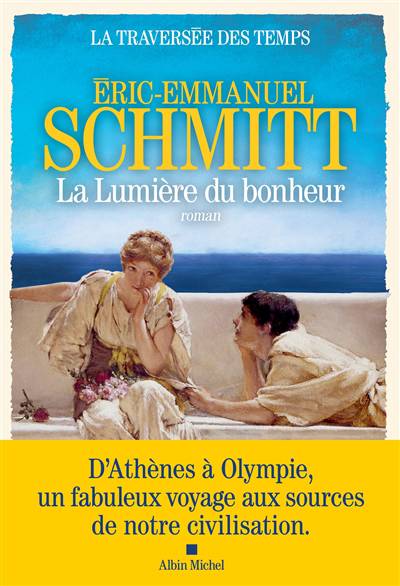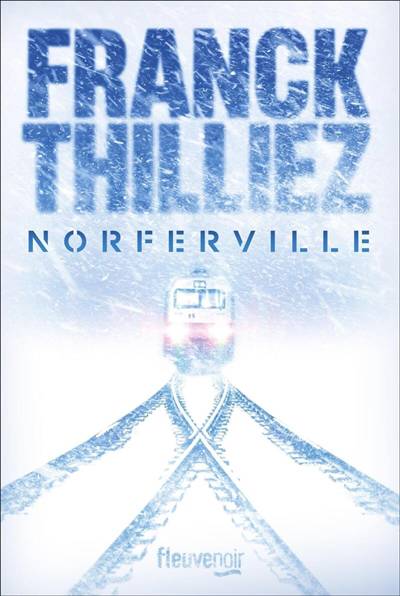
- Retrait gratuit dans votre magasin Club
- 7.000.000 titres dans notre catalogue
- Payer en toute sécurité
- Toujours un magasin près de chez vous
- Retrait gratuit dans votre magasin Club
- 7.000.000 titres dans notre catalogue
- Payer en toute sécurité
- Toujours un magasin près de chez vous
Raven's Flight to Freedom
Odyssey from Wartime Lithuania to Land's End America: A Story of Survival Dedicated to Those Who Retained Their Humanity Amidst Great Evil. Righteousness Ultimately Prevails Over Despotic Forces, Albeit Slowly.
Algirdas V KanaukaDescription
In 1941 Nazi Germany attacked the Soviet Union and the Soviets retreated. Life was tough but better than before. Then the Soviets were pushing the Germans back, and our family like millions of others decided to move into Germany toward Western Europe as refugees to avoid life under Stalin's Soviet Russia. The Germans were ready for the influx of refugees because they needed their labor.
We entered Germany on July 20, 1944 the day of the assassination attempt on Hitler's life. Those were tense times. We ended up in a labor camp in Oels, near Breslau, (now Wroclaw). Since my father was an MD, he was assigned to a hospital in Breslau and we moved there with him. Then, through the efforts of my mother, my sister and I were evacuated to St. Florian Stift in Neuzelle, a convent of Catholic Nuns, further west, near the Oder River, to avoid the frequent bombings and approach of Russians from the East. This was an experience full of fright and terror, but sometimes full of insights and poignant awareness of spirit that people go through in times of war.
When the Soviet Army began to advance into Germany, our parents joined us in St. Florian Stift and we moved again further West via bombed-out ruins of Berlin to the city of Kempten in Southern Germany. That trip was full of interaction with the German people, other refugees and even Nazis of the collapsing Third Reich.
We ended up in a village called Wildpoldsried outside the city of Kempten where we awaited the end of the war. This village was within the proximity of Alpine mountain views and grazing cows. We watched thousands of American bombers flying overhead toward German cities, more distant from us. On May 8,1945 the war ended in Germany.
Under the auspices of the United Nations, we spent four more years in a Displaced Persons Camp in Kempten as refugees. We did not have a place to return, did not have a country, nor did we want to go back because our country was now under communist rule.
My manuscript contains descriptions of life in such camps; places full of desperate people whose lives were disrupted and their futures completely uncertain. It also covers the better parts: people managed to get organized, schools were established, artists, musicians, poets, and writers began to express their talents and former academics began to give lectures. Life was bearable but somehow insufficient because it was obvious that such a existence could not to continue much longer. Finally, the UN found us new homes in the free countries of the world: Australia, United States, United Kingdom, Canada, Brasil, Argentina, etc. This was a relief.
We had to go through a screening procedure (vetting) in order to weed out undesirables such as criminals, communists, nazis, and potential subversives. Our family was fortunate to get sponsors in the United States of America and we reached New York in 1949.
Then came another stroke of good luck. Some kind people helped me get into The Military College of South Carolina, The Citadel, in the historic city of Charleston. It was a tough school for future defenders of America. For the Corps of Cadets it was a source of inspiration, discipline, and education. In my memoir I described life and lore of this magnificent old military school of the South, which I'll never forget. Someone expressed it to me, "The Citadel is not just a school or fraternity, it's a sacred order". I believe him even today.
Spécifications
Parties prenantes
- Auteur(s) :
- Editeur:
Contenu
- Nombre de pages :
- 360
- Langue:
- Anglais
Caractéristiques
- EAN:
- 9781950024391
- Date de parution :
- 14-03-19
- Format:
- Livre broché
- Format numérique:
- Trade paperback (VS)
- Dimensions :
- 152 mm x 229 mm
- Poids :
- 526 g







